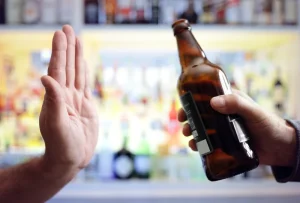
That means you (or your loved one) won’t have to worry about covering the cost of treatment. Instead, all of your energy and focus can be spent where it’s really needed, which is on overcoming addiction. https://ecosoberhouse.com/ The tonic phase is followed by the clonic phase in which the arms and legs jerk rhythmically and rapidly. This typically involves bending and straightening of the major joints (elbows, hips, and knees).
How long after you quit drinking may you experience a seizure?
Quitting cold turkey can come with some severe withdrawal symptoms, and it can be dangerous. The dangerous withdrawal symptoms that are more likely through kindling include seizures, heart problems, and death. If you’ve gone through alcohol or depressant withdrawal in the past, you should seek medical attention before quitting alcohol. Depressants like alcohol can cause your muscles to relax, but withdrawal can cause tremors, muscle tightness, and seizures. Alcohol withdrawal seizures are similar to tonic-clonic seizures, which are often seen with issues like epilepsy. The first may involve a loss of consciousness with increased muscle rigidity.
- Alcohol consumption or withdrawal may trigger seizures in those with epilepsy.
- That’s why alcohol withdrawal can also cause increased body temperature, fast heart rate, and hypertension.
- He also established that patients with epilepsy who drink must be differentiated from alcohol abusing patients having epileptic seizures during withdrawal (24).
Why Medical Detox Is Recommended for Alcoholics
- Experts believe that the kindling phenomenon occurs because of permanent changes in the brain in people with an alcohol dependence.
- In people with a long history of alcohol abuse, the severity of alcohol withdrawal symptoms increases progressively over time with each additional attempt to quit drinking.
- Seeking help for addiction may seem daunting and possibly even scary, but there are several organizations that can provide support.
If you’re dependent on alcohol, you may need to go through a tapering period with the help of a doctor. People with moderate-to-severe alcohol use disorder often begin with a medical detox program. If you have a more severe chemical dependence on alcohol, you may experience more severe symptoms more quickly.

Comparison to previous studies

However, recent data suggest a much lower repeat seizure rate of 13% to 24%.12 The incidence of partial (focal) seizures, common with posttraumatic epilepsy, is increased by alcohol withdrawal. This is why it’s important to go to medical detox for alcohol withdrawal. Healthcare providers can use medications such as benzodiazepines (lorazepam, diazepam) to lower the risk of alcohol withdrawal seizures and treat them if they occur. Seizures can occur during withdrawal from alcohol in people with a history of heavy drinking or long-term alcohol abuse. In fact, as mentioned, alcohol withdrawal seizures are the most common cause of adult-onset seizures.
As the parenteral form of clomethiazole is no longer available, its application is dependent on sufficient alertness and cooperation to enable peroral treatment. For adequate alleviation of delirious symptoms, 200 mg capsules are administered (maximum 24 capsules per day) and doses are repeated every 2–3 h until sufficient calming. As with BZDs, CNS respiratory center depression may emerge, especially in combination with BZDs, whose daily doses should be reduced to 15–20%. Accordingly, the combinatory intake of clomethiazole and ethanol should be avoided due to its possible life‐threatening effects. AUDs are common in patients referred to neurological departments, admitted for coma, epileptic seizures, dementia, polyneuropathy, and gait disturbances.

Therefore, people who heavily abuse alcohol should never try to stop drinking on their own. Medically supervised and supported detox reduces the risk of seizures and other related potentially harmful health conditions. Fetal alcohol spectrum disorders are more prevalent than previously recognized and cause a wide range of birth defects and neurodevelopmental disorders (47). There is no current evidence that alcohol-related seizures confer additional maternal or fetal risk, over and above those of alcohol abuse and seizures independently. A pregnancy test should be performed in all women of childbearing age with alcohol withdrawal (70). Pregnant patients should be admitted to the inpatient setting if they require withdrawal management, and an obstetrician should be consulted (70).
Delirium Tremens
Similarly, phenytoin is not effective in protecting against the occurrence of seizures in withdrawing alcoholics (71,72). Valproate is protective against alcohol withdrawal convulsions in mice (73). The intravenous formulation is gaining acceptance in the clinical management of status epilepticus so that it could potentially be used in prophylaxis against alcohol withdrawal seizures. Increasing interest is expressed in the potential of gabapentin as a treatment for alcohol withdrawal (74–78) and of topiramate in alcohol dependence (79).

- For adequate alleviation of delirious symptoms, 200 mg capsules are administered (maximum 24 capsules per day) and doses are repeated every 2–3 h until sufficient calming.
- The severity of alcohol withdrawal symptoms progressively increases over years of alcohol abuse, and repeated detoxifications augment the likelihood of alcohol withdrawal seizures (83,84).
- It’s also important to note that delirium tremens can be life-threatening.
- Dependence is a chemical response to the consistent presence of alcohol in your brain and body.
- Patients with mild to moderate withdrawal symptoms without additional risk factors for developing severe or complicated withdrawal should be treated as outpatients when possible.